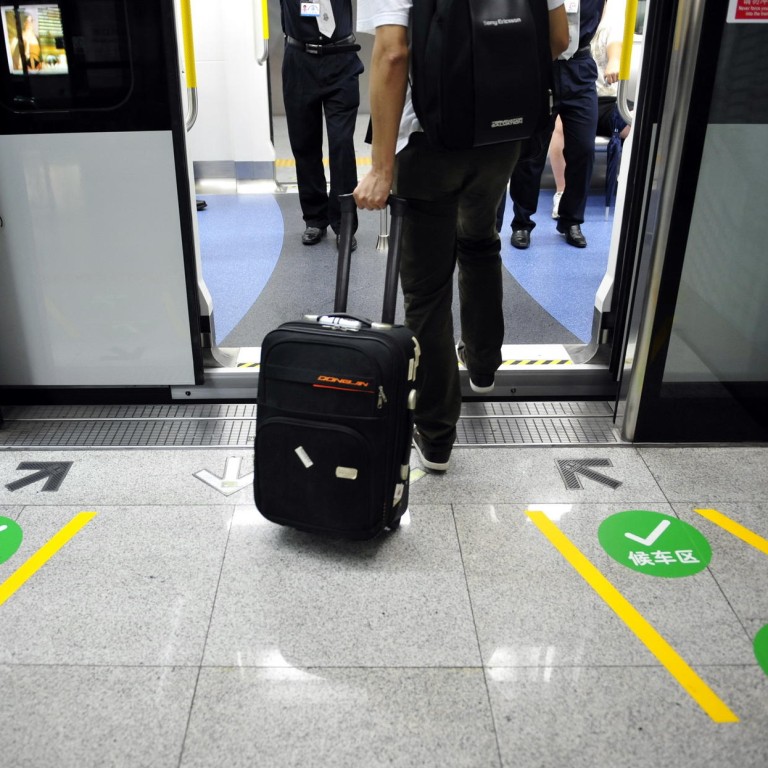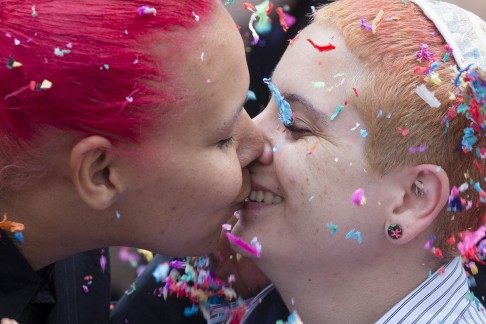
Letters to the Editor, August 23, 2015
It is very true what people say: it's what's inside that counts. My recent experience with the Shenzhen Metro is a perfect testimony to the saying.
The metro in Shenzhen is almost identical to that in Hong Kong, in that they share the same aesthetics, the same station design, with staff members wearing the same yellow uniform. Even the directional signs look the same.
But despite this resemblance, they just feel different.
It's what's inside that counts: the atmosphere, the passengers, the service, the tidiness.
Here in Hong Kong, we seldom see people shouting across the train compartment just to chat.
Here in Hong Kong, train platforms and compartments are sufficiently illuminated, a contrast with the dim lightning on the Shenzhen Metro.
Here in Hong Kong, staff members and helpers are friendly enough for us to approach without hesitation, whereas in Shenzhen, station assistants acted as if they couldn't hear or see you.
Here in Hong Kong, train compartments and platforms are dry and clean; seldom will we see water or tissue paper on the floor.
By sharing these observations, I'm not trying to advocate thoughts for independence. Nor am I making racist comments.
I just want to point out that, no matter how glamorous mainland China may look on the outside, it may not be the same inside.
President Xi Jinping should know that to help China get on a par with its competitors, it needs no big slogans or extra-large "China Dream" characters printed on red banners.
What it needs is some real, down-to-earth education to raise the cultural standards of citizens, and deep reforms to help society have more justice, fairness and equality.
China is now like a modern computer running on the obsolete Windows XP, and has yet to utilise efficiently the processing power of its hardware.
Mr Xi, beauty is not just skin deep.
I read with amusement the letter from assistant commissioner for transport Irene Ho ("Small Increase in car numbers won't destroy Lantau idyll", August 18).
Sorry, Ms Ho, we can see through your government-speak.
It is clear from the tone of her letter that the government has already taken a decision to open the road, even though she adds the standard bureaucratic homily about consulting all relevant parties.
We've seen all of this before. It is about time our government learned to hold proper consultations before decisions are taken, and realised that we citizens are not to be ignored.
It is astonishing that a government department should pre-empt the outcome of its own consultation process by publicly affirming its policy and criticising some of the opposing views while the consultation is still under way.
Following a public outcry after the Transport Department plan to open up south Lantau roads was made public in June, the department consented last month to take submissions from community groups.
That consultation is still taking place, as assistant commissioner Irene Ho acknowledges in her letter ("Small increase in car numbers won't destroy Lantau idyll, August 18). In which case, why was she restating the department's case?
The point of a consultation is to evaluate and develop policy in the light of the viewpoints and needs of stakeholders.
By implication, the policy is under review until those views have been taken into account.
It seems that Ms Ho is in fact confirming that for this government, a "consultation" is a procedural box to be ticked that is not intended to have any bearing on the policy outcome.
Over the past two years, the government has consulted quite closely with developers, tourism and travel industry representatives who, along with government political supporters, make up almost the entire membership of the Lantau Development Advisory Committee. No community or environmental group is represented on the body.
It is the advice of those commercial interests that take precedence ahead of the critical opinions of local police and residents, and the practical considerations of ensuring adequate parking and traffic safety.

Same-sex marriage has been legalised in the United States since the landmark decision by the Supreme Court in June. However, debate still rages on about whether it is acceptable, as many see it as contrary to the word of God and traditional family values.
Can't people be religious and/or traditional and still find same-sex marriage acceptable?
Our world has become so black and white: either you're with me or against me. In a polarised world, we exclude people with different views from ours. No one could survive for long in such an unforgiving world.
The only way out is to go back to the values of compassion, empathy and understanding. People can live in a world of complexities. I can support same-sex marriage and be a Catholics at the same time. We don't have to choose between supporting homosexuality and traditional family values because we are capable of holding both.
Freedom of expression is one of the core values of Hong Kong. While we enjoy our rights, we must also take up our responsibilities.
We should respect another. Our diversity is what makes us incredible.
I could not agree more with Peter Lok that an extra airport is better than a third runway ("New airport better than third runway", August 13), because many international cities have separate international and domestic airports to handle visitors.
I suggest building the new airport in northeastern Sai Kung, where it is best to handle international visitors, who can travel to Shenzhen for sightseeing at a shorter distance than from Chek Lap Kok airport.
At the same time, Hong Kong can further transform to be a 100 per cent tourism city like Hawaii and Brisbane, which does not have factories but hotels and restaurants, and entertainment business, which can bring a huge amount of tax revenues for Hongkongers to enjoy.

